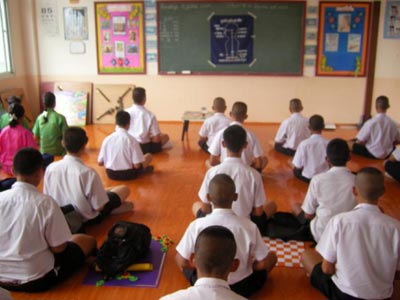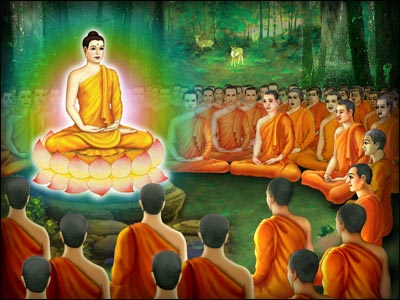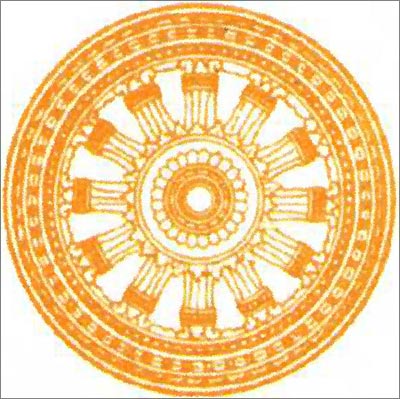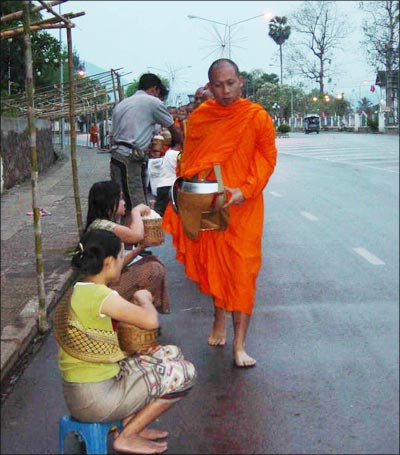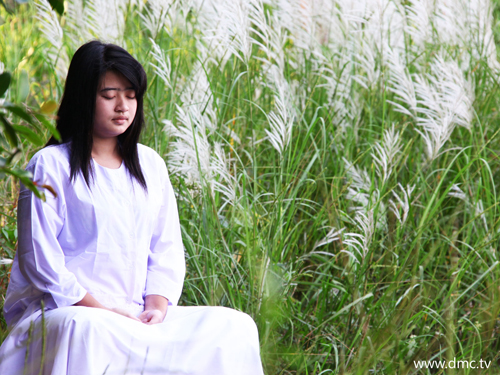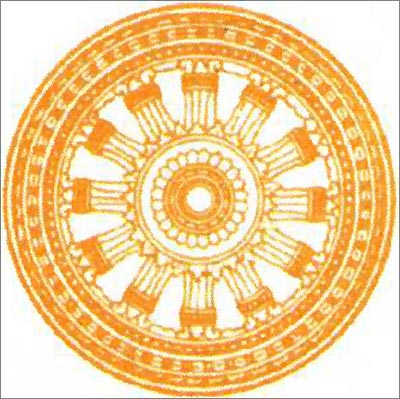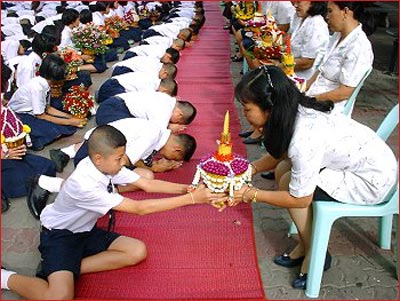Code of Good Conduct #1Code of Good Conduct refers to rules and regulations and is linked to discipline“A sword without a scabbard or a hand-grenade without a safety catch can bring as more danger as benefit to the user because there is no way of controlling them.Knowledge and ability are just the same. They can either be used to overcome obstacles of all kinds or be used creatively.Or else without self-discipline, they can be used to inflict suffering on others and create terrible damage.This latter is especially the case for those who can’t tell the difference between right and wrong. The more knowledge they have, the more likely that what they know will be turned back to destroy themselves.”Code of Good Conduct refers to rules and regulations and is linked to discipline, that people use to direct their behaviours and speech in the society they live in. Discipline helps to keep things in order and brings people together so that everyone will be contented and satisfied with the way they live. Codes of good behaviour and disciplines can help to protect people and prevent disagreements.Codes of good behaviour and disciplines can help to protect people and prevent disagreements.When members of society lack disciplines and everyone just does everything they want, others will get annoyed and irritation will probably happen. More people will create more problems leading to unrest and unhappiness.No one will live in peace and work on projects they are assigned to work together when everything is in disarray.The concept of disarray can be illustrated by using the image of flowers. When putting flowers on the table, if they are not arranged beautifully, it not only decreases their value, but it will also make things look uncared. But if you put them together, either in a vase or tied into a bunch by some ribbon they will look nice as a decoration in the house or as a gift for someone. If we compare the community members as flowers and if tied together by some ribbon, the flowers will be well-arranged and orderly, then the people involved will feel happier to help each other and not make so many problems.Therefore, discipline is used to direct people towards positive conduct. It will lead the members to do what is right.Training in self-discipline, means training especially through the medium of keeping the Five Precepts the whole of the time, while conforming to the social customs and laws of the land.Our health depends on the world we live in. e.g. clean air, water, streets, etc.Types of DisciplineAs humans we are made of twp essential components: body and mind.Our health depends on the world we live in. e.g. clean air, water, streets, etc.Our mind, on the other hand, is dependent upon the Dhamma and how much time we invest in li9stening to the true purpose of life. It will make our mind cheerful and happy.To have both a healthy body and mind. We should live our life in ways that make both aspects healthy.Those who are intelligent and knowledgeable need to study, both worldly and the Dhamma for a happy life.Those who are intelligent in practice they have to do the things they do well both in the world and in the Dhamma.The same thing applies to those who are intelligent in usage, they must have discipline in the worldly way and Dhamma way. These will lead us to use only what is correct and will enhance our talents and skills.Our mind, on the other hand, is dependent upon the Dhamma and how much time we invest in listening to the true purpose of life.Worldly DisciplinesWorldly discipline refers to codes of conduct that are written and accepted within a community to direct its members to behave in a certain way or to prevent certain negative types of behaviours. The disciplines can be divided into various categories, such as law, traditions, degree, rules, etc.Dhamma DisciplinesThere exist two aspects in Buddhism: the community of monks and lay people.Therefore, there are two sets of disciplines in Buddhism are as follow:1. Disciplines for those who ordain as a monk, novice, female monk or nun.2. Disciplines for those who do not ordain. This applies to both men and women1. The Discipline for Those Who Choose CelibacyThe ultimate goal for monks is to eliminate all defilements, which requires them to possess a deep sense of purpose and knowledge. For them to acquire knowledge, they need to have a strong sense of concentration, which can be attained through consistent meditation practice. This depends upon their commitments in keeping their precepts. The four disciplines are for those whose goal is to remain celibate.- Restraint According to the Monastic Code of Conduct for monks is to keep the 227 precepts that the Lord Buddha practiced. Refrain from the ones he forbade and practice the ones he set as the code.The ultimate goal for monks is to eliminate all defilements, which requires them to possess a deep sense of purpose and knowledge.- Restraining from Their Senses is for the monks to refrain them selves from being attracted by sounds, smells, tastes, or touch. What they should not watch should not be watched, what they should not listen too, should not be listened to, what they should not smell should not be smelt, what they should not taste should not be tasted, what they should not touch not be touched, and what they should not think should not be thought.- Puriy of Livelihood refers to the fact that monks can make their living, which in their case, is by doing alms round as they need food to stay alive. It is against the code of conduct that monks earn wages, play lotteries, act as a clairvoyant or as a matchmaker, etc.- Reflection on the Requisites refers to monks reflecting on the four sorts of requisites before they use them. By doing so, it will decrease their attractions to clothing, food, shelter, and medicine. They eat to live, not live to eat.When Buddhism was still in its infancy, there was no wmphasis on disciplines because the mumbers of monks were only a few, but all dedication their time to practice meditation and Buddhism.They knew what was appropriate and what was not. However, as time went by, and the number of monks increased, many of those behaved inappropriately. The Lord Buddha then declared codes of conduct for the monastic community to follow. For example, the first code of conduct was declared because a monk named Suthin went back to his home and slept with his wife because his parents wanted grandchildren. The Lord Buddha then declared the first code of conduct that forbids sexual relationships for all monks.
Code of Good Conduct #1
A sword without a scabbard or a hand-grenade without a safety catch can bring as more danger as benefit to the user because there is no way of controlling them
5188 ครั้ง
ปิดการแสดงความคิดเห็น






